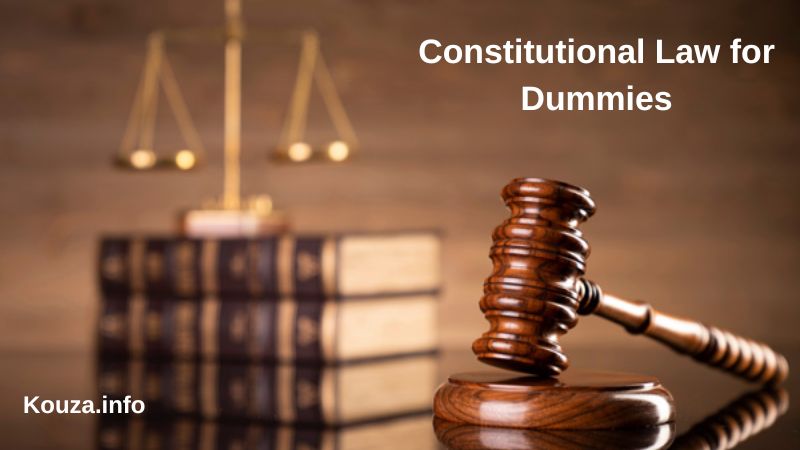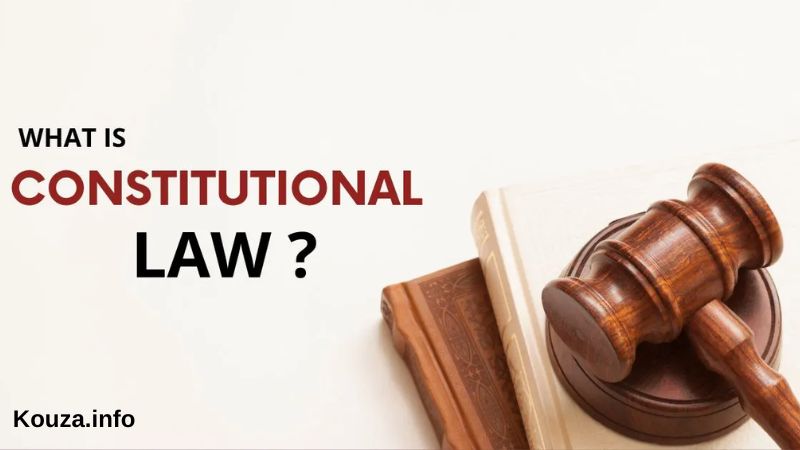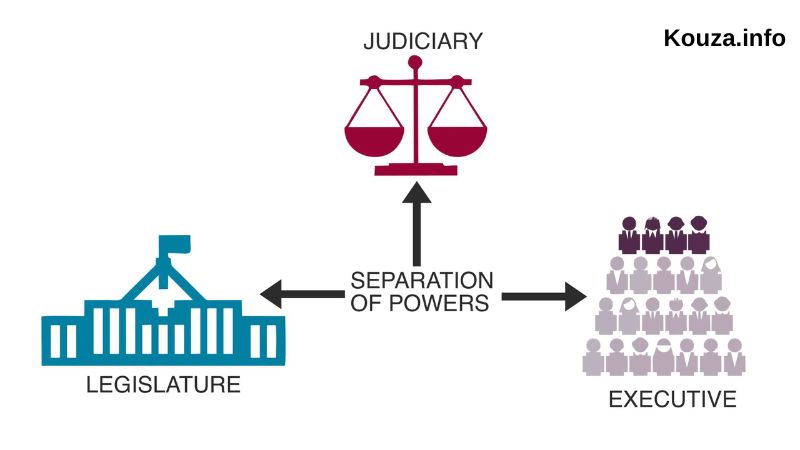Constitutional Law for Dummies: Understanding the Foundations of Government

In the vast landscape of legal principles and regulations, one area stands out for its fundamental importance: constitutional law. Often regarded as the cornerstone of a nation’s governance, constitutional law dictates the structure of government, safeguards individual rights, and ensures a system of checks and balances. For those seeking a primer on this crucial subject by Kouza.info, constitutional law for Dummies provides an accessible entry point into its complexities.
What is Constitutional Law?
Constitutional law, a cornerstone of legal jurisprudence, governs the intricate dynamics between different branches of government, delineating their respective powers and duties within the framework established by a nation’s constitution. It serves as a guiding force in shaping governance structures and safeguarding the fundamental rights and liberties of citizens. By interpreting and applying constitutional provisions, legal scholars and practitioners navigate the complex terrain of governance, ensuring adherence to the principles of democracy, rule of law, and separation of powers. Thus, constitutional law stands as a bulwark against governmental overreach and infringement upon individual freedoms.

Constitutional Law for Dummies
The Constitution:
At the heart of constitutional law lies the constitution itself, a foundational document that serves as the cornerstone of governance in a nation. This written instrument delineates the fundamental principles, structures, and functions of government, serving as the supreme law of the land. By establishing the framework within which all other laws and governmental actions must operate, the constitution provides a blueprint for the distribution of power, the protection of rights, and the maintenance of order within society. It stands as a testament to the collective aspirations and values of a nation, shaping its legal and political landscape.
Separation of Powers:
Within the domain of constitutional law, the concept of the separation of powers stands as a foundational principle. This doctrine delineates the allocation of governmental authority across three distinct branches: the executive, legislative, and judicial. Each branch possesses its own unique powers and responsibilities, ensuring a system of checks and balances that prevents any single branch from monopolizing control. By dispersing authority among these branches, the separation of powers safeguards against tyranny and promotes governmental accountability, thereby upholding the principles of democracy and the rule of law.

Bill of Rights:
Embedded within many constitutions is a bill of rights, a crucial component of constitutional law for dummies. This section enumerates the fundamental rights and freedoms of individuals, safeguarding them from government overreach. Rights such as freedom of speech, religion, and assembly, as well as protections against unjust treatment, form the bedrock of democratic societies.
Judicial Review:
One of the most powerful tools in constitutional law for dummies is judicial review. This authority grants courts the ability to scrutinize the actions of the legislative and executive branches to ensure they align with constitutional principles. Through judicial review, courts act as guardians of the constitution, upholding its integrity and enforcing its provisions.
Amendment Process:
Even the most meticulously crafted constitution may require revisions over time. Constitutional law for dummies elucidates the process of amending a constitution, which typically involves a deliberate and rigorous procedure. Requiring significant consensus, constitutional amendments reflect the evolving needs and values of society.

Federalism:
For nations adopting a federal system of government, such as the United States, federalism is a cornerstone of constitutional law. This principle divides power between a central (federal) government and regional (state or provincial) governments. Federalism ensures a balance of authority, allowing for both national unity and local autonomy.
Civil Liberties vs. Civil Rights:
In the realm of constitutional law, discerning between civil liberties and civil rights is crucial for a comprehensive understanding. Civil liberties encompass the array of individual freedoms safeguarded by law, encompassing rights like freedom of speech, religion, assembly, and privacy. Conversely, civil rights pertain to the legal protections ensuring equality and fair treatment for all individuals under the law, encompassing rights such as the right to vote, the right to due process, and freedom from discrimination based on race, gender, or other protected characteristics. Together, civil liberties and civil rights form the cornerstone of a just and equitable society, ensuring that individuals are empowered to exercise their freedoms while also being protected from unjust treatment or discrimination.
Final Thougth
In navigating the intricacies of constitutional law, it’s crucial to grasp these foundational concepts. Constitutional law for Dummies serves as a beacon, illuminating the path toward understanding the principles that underpin our system of governance. Whether exploring the separation of powers, the significance of a bill of rights, or the mechanics of judicial review, this primer equips readers with the knowledge needed to navigate the complexities of constitutional law.
In conclusion, constitutional law for dummies is not merely a beginner’s guide but a vital roadmap to the heart of our legal system. By delving into its principles and applications, individuals gain a deeper appreciation for the rights and responsibilities inherent in citizenship. As we continue to grapple with issues of governance and justice, a solid understanding of constitutional law remains indispensable.
Conclusion: So above is the Constitutional Law for Dummies: Understanding the Foundations of Government article. Hopefully with this article you can help you in life, always follow and read our good articles on the website: kouza.info



